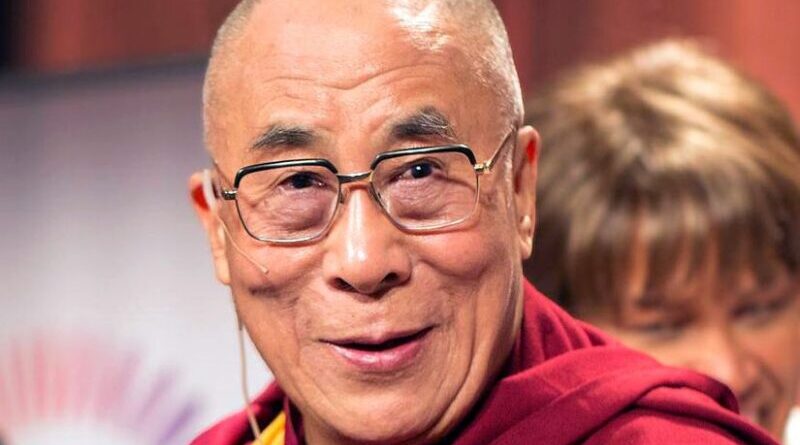China: ‘Central Government Will Approve Dalai Lama’s Reincarnation’ – Analysis
By SAAG
By D. S. Rajan*
According to various reports in the world media [1] including those appearing in the pro- Dalai Lama Tibetan-run agencies in India, a statement issued after a meeting of the top policy making body in China- the Politburo Standing Committee of the Chinese Communist Party (CCP), chaired by the party chief Xi Jinping, held at Beijing, on July 30, 2015, has averred that “the authority of the central government has always been important in the reincarnation process. Historical precedents have clearly shown the central government’s vital role in the process. Since then, all confirmations of the Dalai Lama have required approval by the central Chinese government, which has deemed the process an important issue concerning sovereignty and national security. ” I
nterestingly, the contents of the Statement have almost been identical with those of an earlier Xinhua commentary.[2] A particular report (Italian language Christian News service-Asia News) quoted an anonymous source as telling at the end of the meeting that Xi Jinping said as follows on the occasion- “the CCP would pick the next Dalai Lama period; if things do not go well, we are ready to take corrective action.”
A dispatch in English of the state-run Xinhua news agency[3], while confirming that a politburo meeting took place (it did not call the meeting as a politburo standing committee gathering), has however given a different version of the proceedings with no mention of the Dalai Lama or his reincarnation. It only said that “Chinese leaders met to discuss economic and social development in Tibet and how to ensure the autonomous region achieve prolonged stability. Safeguarding national unity and strengthening ethnic unity should be highlighted in work involving Tibet. Efforts should be made to unswervingly carry out the anti-separatism battle, promote the region’s economic and social development, safeguard and improve people’s welfare, and enhance exchanges and integration of different ethnic groups.” It did not say about creation of the new CCP leading group for united front work, which otherwise found a place in the coverage of Asia News mentioned above.
There could be a purpose behind the latest top level statement on the issue of reincarnation of the Dalai Lama. Beijing must be realizing that the importance of the Dalai Lama’s position as leader of Tibetan Buddhism remains undiminished. Also, it faces constant international pressure particularly from the West, to reopen its talks with the latter’s representatives. It may also not miss the existence of opinions within the CCP (for e.g views of Professor Jin Wei of the CCP Party School) in favor of a soft line towards the 14th Dalai Lama. Another point which may have drawn China’s attention relates to the overtures to the Centre now being made by the latter. En route to the US to celebrate his 80th birthday, the ageing Dalai Lama told the press (India Today, July 2,2015) that he would like to go home to Tibet-as well as meet his friend Xi Zhongxun’s son, President Xi Jinping. It is probable that the Xi Jinping leadership, considering all such aspects, has reached a fresh consensus that reopening talks with the Dalai Lama side would now be in China’s interests and chosen to appoint a new leading group on united front work to implement it. The presumptive consensus could be based on a premise that such talks can be helpful to China at a time when it is engaged in maintaining a new type of international relations, especially when in coming September, Xi is scheduled to visit the US, a country which is pressing for China’s opening up to the Tibetan Buddhist leader. It should be noted in this connection that the statement issued has only dealt with, rather firmly, on the reincarnation issue, but remained silent on talks, leaving the matter of resuming dialogue wide open.
The Statement has definite implications for relations between India and China though the Tibet issue is not a bilateral political problem among them. Any settlement of the issue between Beijing and the Dalai Lama can contribute to creating a right atmosphere for solving the vexed
India- China border problem which was once non-existent and arose only after China
‘liberated ’Tibet. It would be in interests of India if it can find ways to indirectly contribute to a solution of the Tibet issue, in particular to resumption of negotiations between Beijing and the Dalai Lama side.
*The writer, D.S.Rajan, is Distinguished Fellow, Chennai Centre for China Studies, Chennai, India. Email:[email protected]
[1] http://www.asianews.it/news-en/China%E2%80%99s-Communist-Party-will-pick-the-%E2%80%9Cnext-Dalai-Lama,-period!%E2%80%9D-34948.html, August 4,2015: http://www.phayul.com/news/article.aspx?id=36311&article=Tibetans+rubbish+Chinese+claim+over+Dalai+Lama+reincarnation, August 3,2015
[2] “China Voice: For reincarnation, it takes more than just the words of Dalai Lama”, Xinhua, July 19, 2015, http://www.china.org.cn/china/Off_the_Wire/2015-07/19/content_36095684.htm
[3] “Chinese leaders discuss Tibet development, stability”, http://news.xinhuanet.com/english/2015-07/30/c_134464659.htm, July 30,2015

